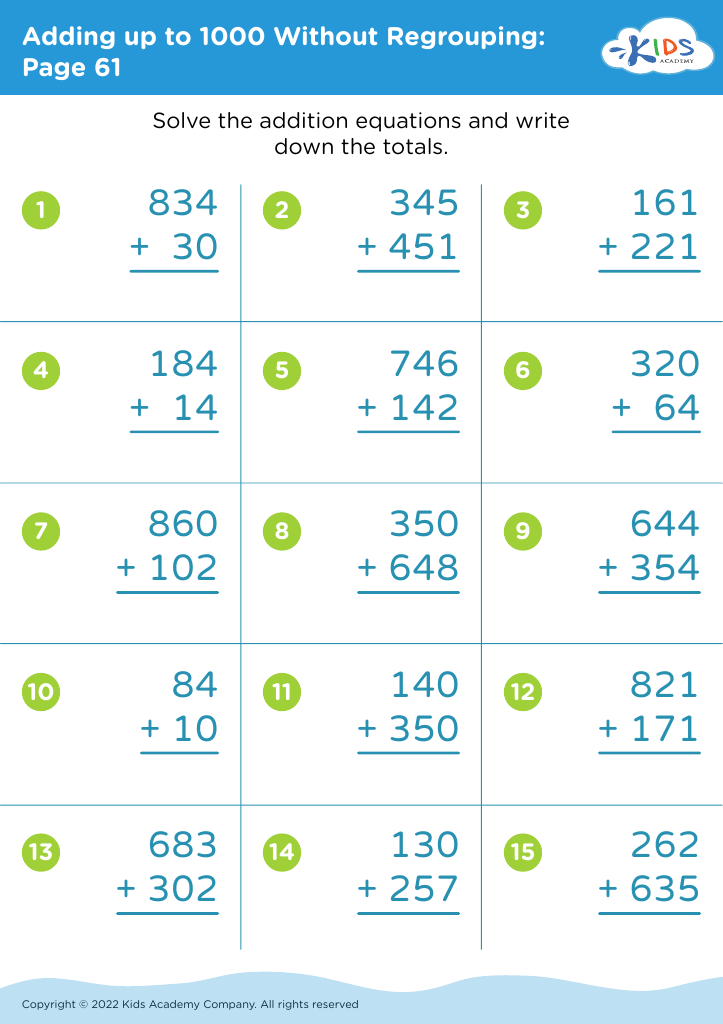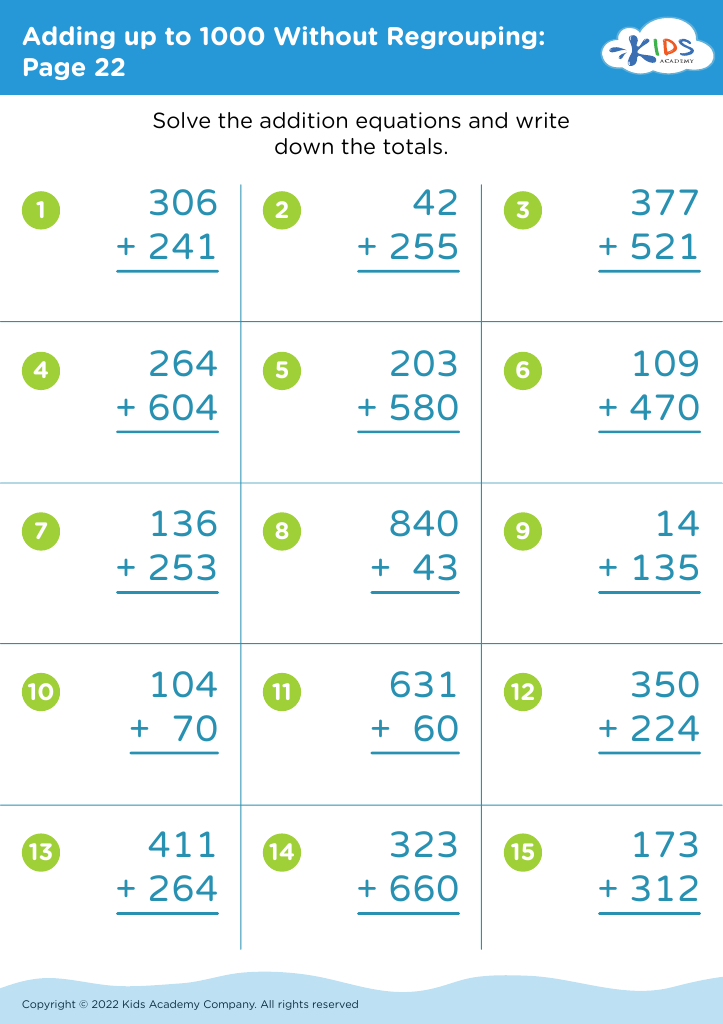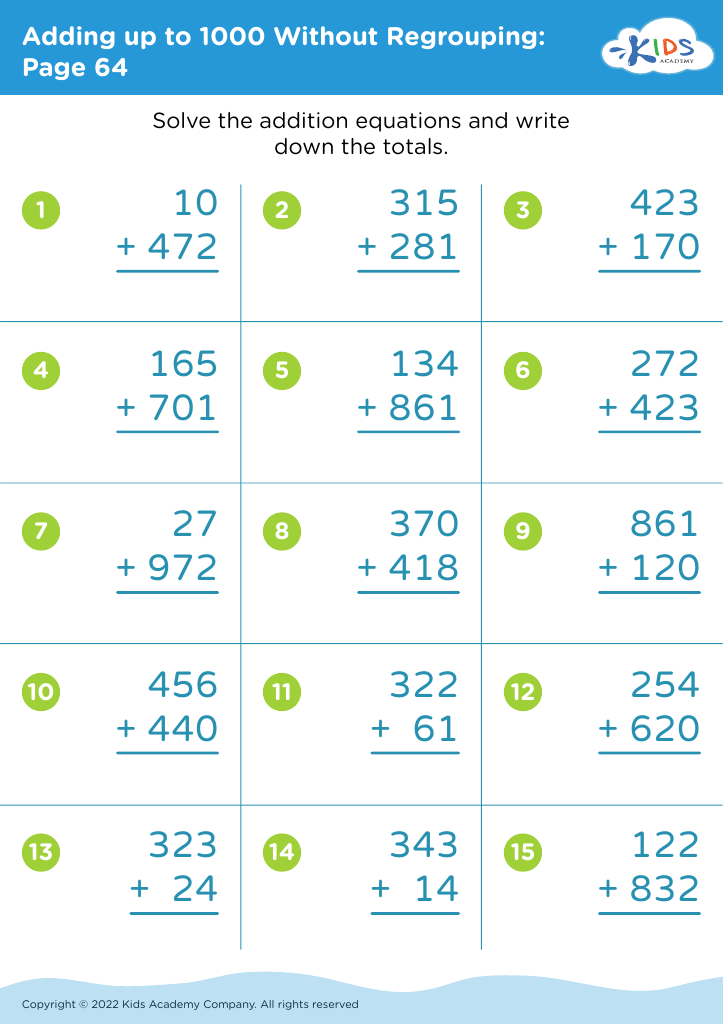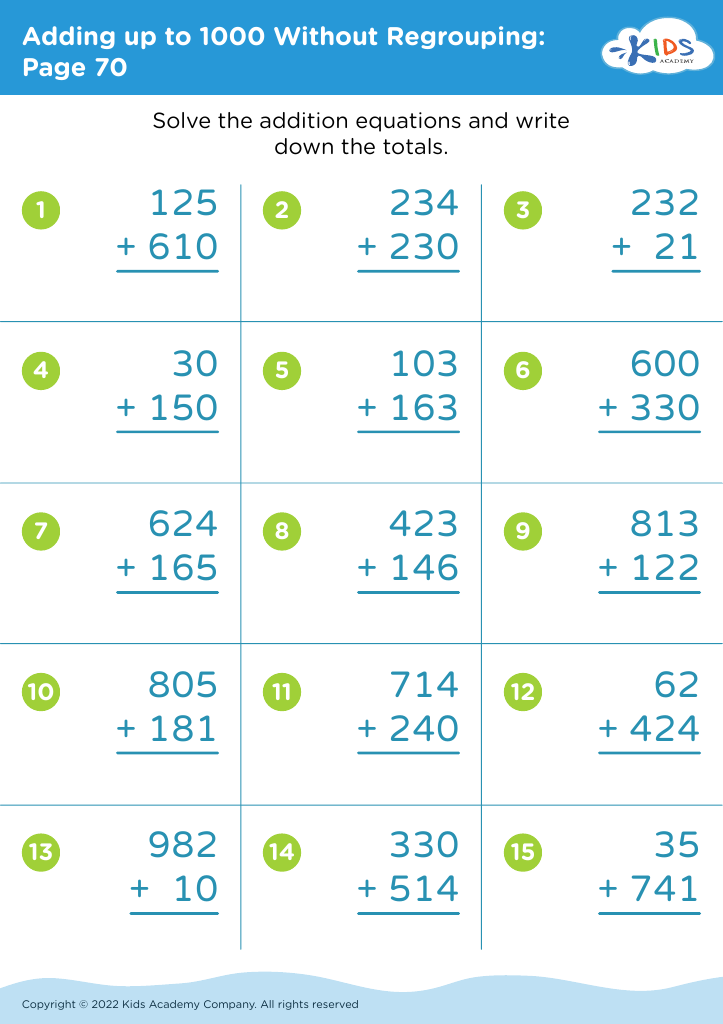Counting skills Adding up to 1000 Without Regrouping Worksheets for Ages 4-7
10 filtered results
-
From - To
"Enhance your child's math abilities with our Counting Skills - Adding up to 1000 Without Regrouping Worksheets tailored for ages 4-7. Designed by experts, these engaging printable sheets help young learners develop foundational addition skills in a fun, stress-free manner. Focusing on straightforward, non-regrouping addition, these worksheets ensure students confidently add numbers within 1000, reinforcing number sense and arithmetic fluency. Perfect for both classroom and at-home practice, these resources support consistent progress and boost confidence in math. Equip your child with the tools to excel in their early math journey today!"
For more details, visit Kids Academy Learning Worksheets.
Counting skills and the ability to add up to 1000 without regrouping are essential foundational skills for children ages 4-7 that can profoundly impact their future learning and everyday life. Parents and teachers should prioritize this area for several reasons.
First, mastering these skills early on helps children build a strong number sense, which is critical for more advanced mathematical concepts. Counting and simple addition lay the groundwork for understanding place value, which is essential for all arithmetic operations.
Second, these skills enhance problem-solving abilities and cognitive development. By learning to add without regrouping, children practice logical thinking, pattern recognition, and develop memory skills, which contribute to overall intellectual growth.
Third, competence in basic arithmetic instills confidence. When children understand numbers and can perform simple calculations effortlessly, they are more likely to enjoy math and approach challenging problems with a positive mindset. This confidence can extend to other academic areas, fostering a love for learning.
Finally, early proficiency in counting and addition equips children with practical life skills. From counting objects to managing simple tasks like measuring ingredients or understanding money, these competencies are invaluable in daily activities.
Therefore, ensuring that children ages 4-7 develop strong counting skills and can add up to 1000 without much difficulty is pivotal for their broader educational journey and everyday life experience.




















